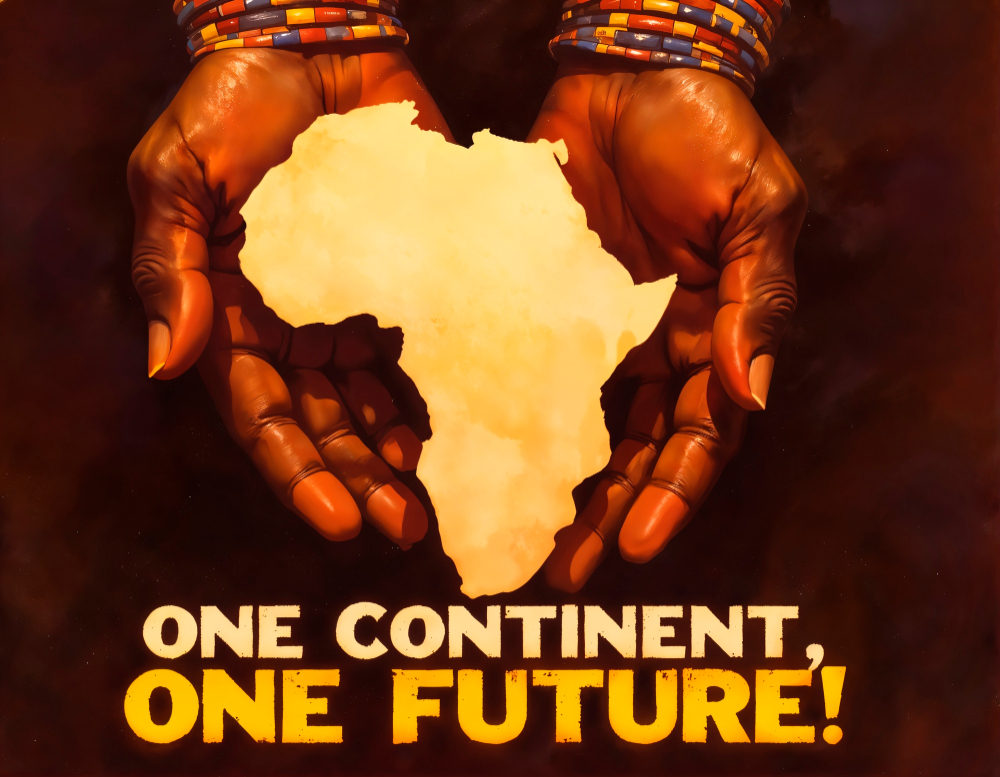Imagine a single African economic zone with over 1.4 billion people, seamless trade, and no borders. A Kenya-based TV station could reach viewers in Lagos, Dakar, or Accra without regulatory hurdles. A startup in Rwanda could launch instantly in South Africa. This is not a dream — it’s a missed opportunity that African leaders have long failed to fully realize.
While global giants like the United States, China, and India benefit from vast domestic markets that fuel innovation, scale, and investment, Africa remains disintegrated into over 50 separate economies. The fragmentation costs the continent jobs, revenue, bargaining power, and influence.
🌍 The Case for a United African Economic Zone
The potential of African unity has been discussed since the days of Kwame Nkrumah and the founding of the Organization of African Unity. Today, the African Continental Free Trade Area (AfCFTA), launched in 2021, is a step in the right direction. However, it still faces major implementation barriers.
Here’s why a single economic block is crucial:
- 1. Economies of Scale: Businesses would be able to serve a massive customer base, reducing production and marketing costs.
- 2. Investment Magnet: A unified market is far more attractive to global investors than fragmented regions.
- 3. Stronger Bargaining Power: Africa could negotiate better trade deals and compete fairly in the global economy.
- 4. Free Movement of People & Goods: Boosts tourism, labor mobility, and intra-Africa commerce.
- 5. Boost to Local Industries: African-made goods would gain broader markets and foster regional value chains.
📉 Why Has Africa Failed to Fully Unite?
Despite decades of political rhetoric, true economic integration remains elusive. Here are some of the reasons:
- 1. National Interests: Many leaders prioritize sovereignty and short-term political gains over regional unity.
- 2. Infrastructure Gaps: Poor roads, railways, ports, and digital connectivity hinder cross-border commerce.
- 3. Bureaucracy & Corruption: Complex customs procedures and corruption make intra-African trade expensive and slow.
- 4. Currency Fragmentation: Over 40 currencies in Africa create costly and volatile trade conditions.
- 5. Lack of Political Will: Unity requires compromise and coordination, which many governments are reluctant to pursue seriously.
🌟 What Are the Benefits If Africa Unites?
According to the United Nations Economic Commission for Africa, full implementation of the AfCFTA could boost intra-African trade by over 50% by 2030.
Examples of What’s Possible:
- Kenyan digital content producers could earn advertising revenue from viewers across the continent.
- Nigerian music artists could tour and sell merchandise across African cities with no visa requirements.
- Startups could access a larger pool of talent and capital without cross-border restrictions.
- Local manufacturing could grow as demand for African-made goods rises across regions.
GDP Impact: A united Africa could create a combined GDP of over $3.4 trillion, making it the fifth-largest economy in the world.
🚧 Challenges That Must Be Overcome
- Protectionist Policies: Some countries fear losing local industries to stronger economies.
- Inconsistent Regulations: Differing tax systems, laws, and trade rules cause friction.
- Political Instability: Conflicts and governance crises in some countries stall progress.
- Language and Cultural Barriers: Despite shared history, linguistic and ethnic diversity complicates integration.
💡 What Can Be Done?
1. Implement the AfCFTA Fully: All member states must ratify and enforce the AfCFTA agreement and align national laws with its objectives.
2. Invest in Infrastructure: Roads, digital networks, ports, and energy grids that connect African cities must be prioritized.
3. Harmonize Regulations: Simplify cross-border rules, taxes, and business laws to foster trade.
4. Create a Single Currency or Payment System: Pan-African financial solutions like the Pan-African Payment and Settlement System (PAPSS) can reduce forex dependency.
5. Civic Engagement & Leadership: Citizens and business leaders must pressure governments to take integration seriously and hold them accountable.
🚀 Final Thought
Africa’s unity is not just a pan-African ideal — it’s an economic necessity. Without bold steps toward full integration, Africa will continue to lose out on the benefits of scale, growth, and prosperity. It’s time to tear down the trade borders and build bridges — not just in infrastructure, but in policy, ambition, and shared vision.
As African entrepreneurs, creatives, and innovators push boundaries, the systems around them must evolve too. A united economic Africa is not just possible — it’s overdue.
Tags: African Unity, AfCFTA, Trade, Pan-Africanism, Economic Integration, African Development
Categories: Politics, Business, Governance, Economy, Africa Rising




